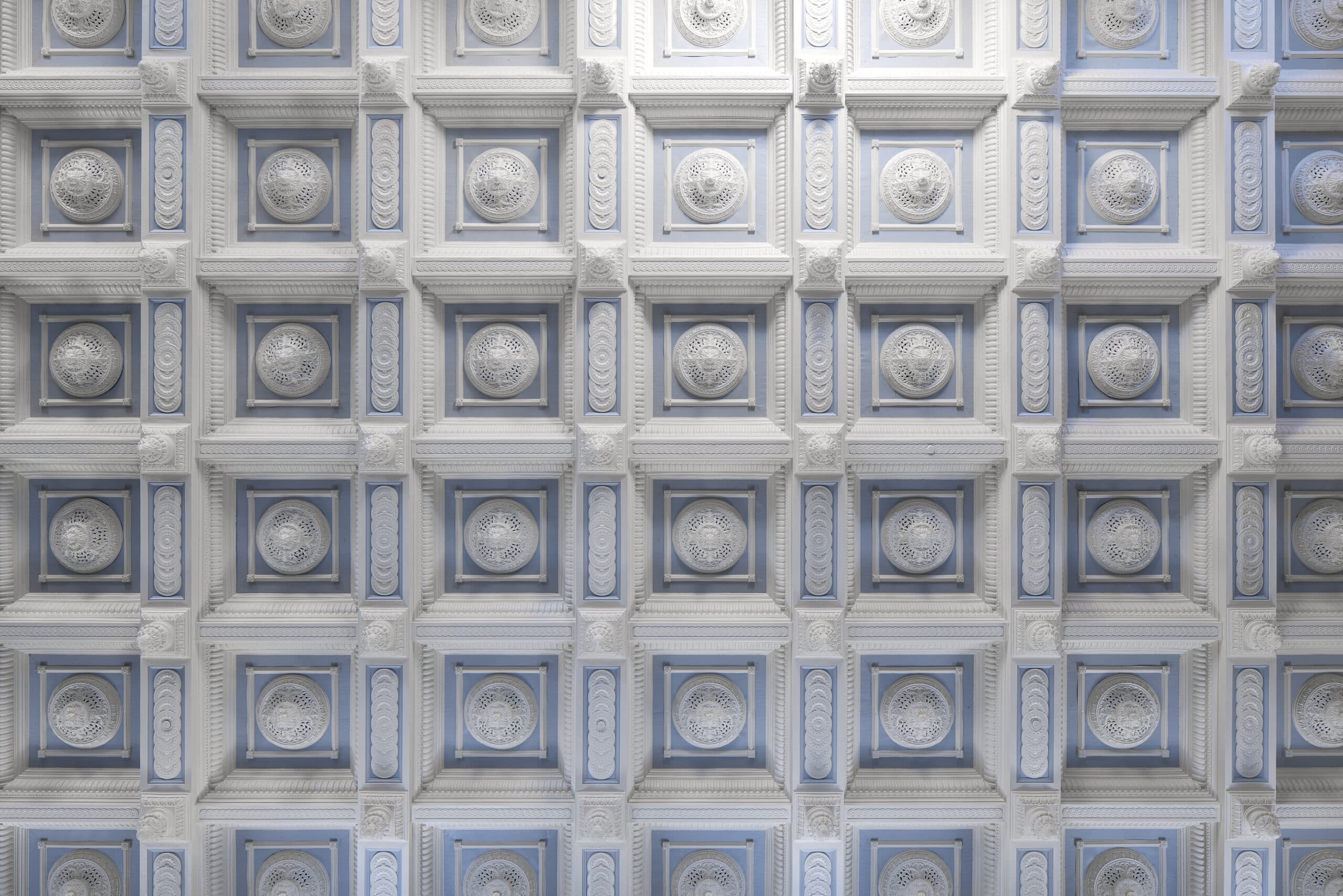We get an inside look at the rejuvenation of the Metropolitan Cathedral of the Sacred Heart in Te Whanganui-a-Tara, Wellington. This extraordinary project was awarded Excellence in the Naylor Love Heritage and Adaptive Reuses Property Award category at the 2025 Property Industry Awards.
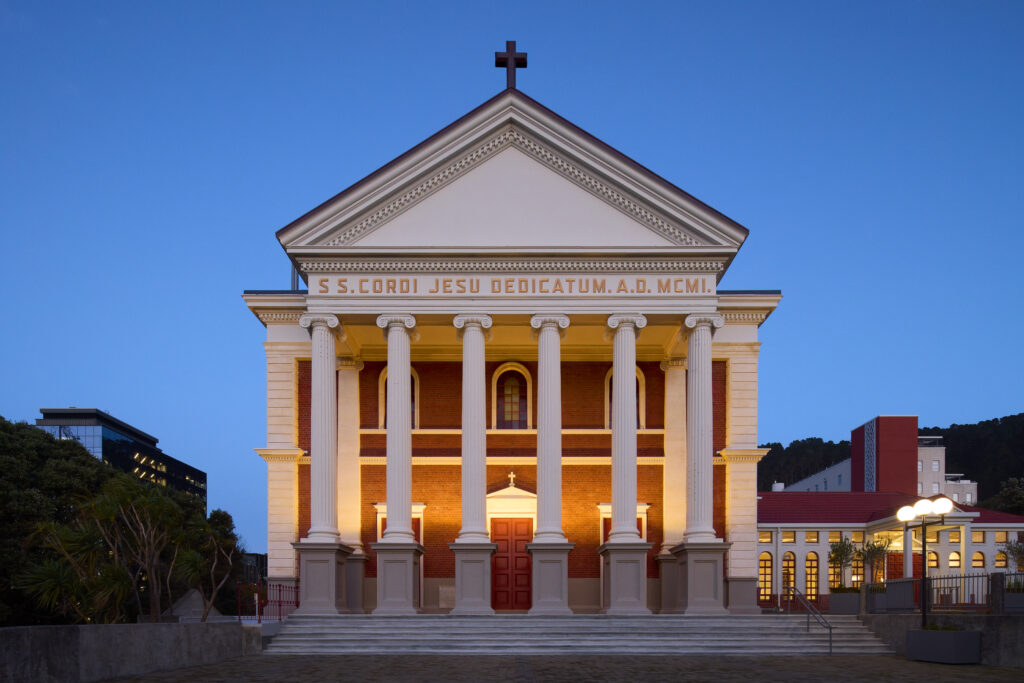
The measure of a successful restoration is its sensitivity but, when the building is a beloved historical and religious landmark, the bar is set even higher. It’s clear that the complete rejuvenation of the Metropolitan Cathedral of the Sacred Heart in Te Whanganui-a-Tara, Wellington has met and even surpassed expectations in this regard. Not that the project started out as a full restoration.
When the Category 1 Heritage Catholic Cathedral on a 4099sqm site was deemed earthquake prone and shut in 2018, the strengthening project evolved into a six-year journey that demanded exceptional levels of skill, respect and innovation. This was, after all, a grand, pillared and much-loved 1901 church building in which myriad baptisms, weddings, funerals and masses had taken place. It was also a place where generations of Wellingtonians had shared spiritual experiences.
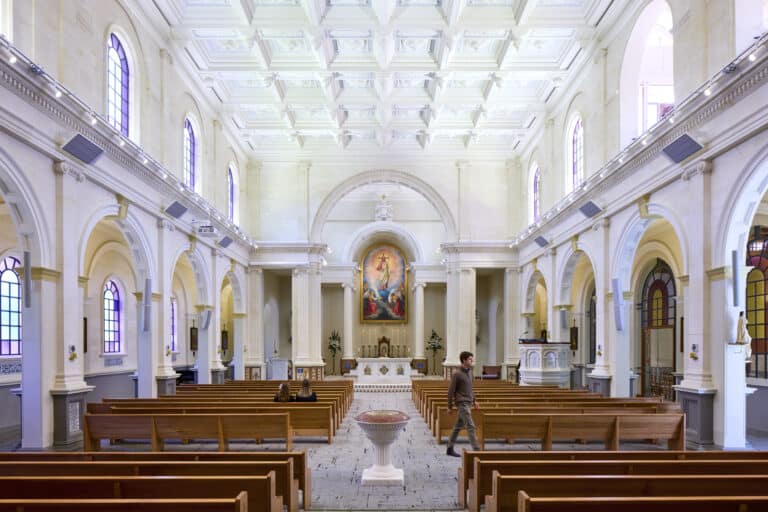
How did this epic project unfold?
Although the immediate reaction to the earthquake danger was to strengthen and open the cathedral as soon as possible, the parish took a bigger-picture long-term view and sought to future-proof their spiritual home. Members wanted to address issues with damaged stone and moisture infiltration, and create improved worship and community spaces. The team charged with achieving the fine balance between respecting history and meeting modern standards included building contractors LT McGuinness and TEAM Architects Wellington.
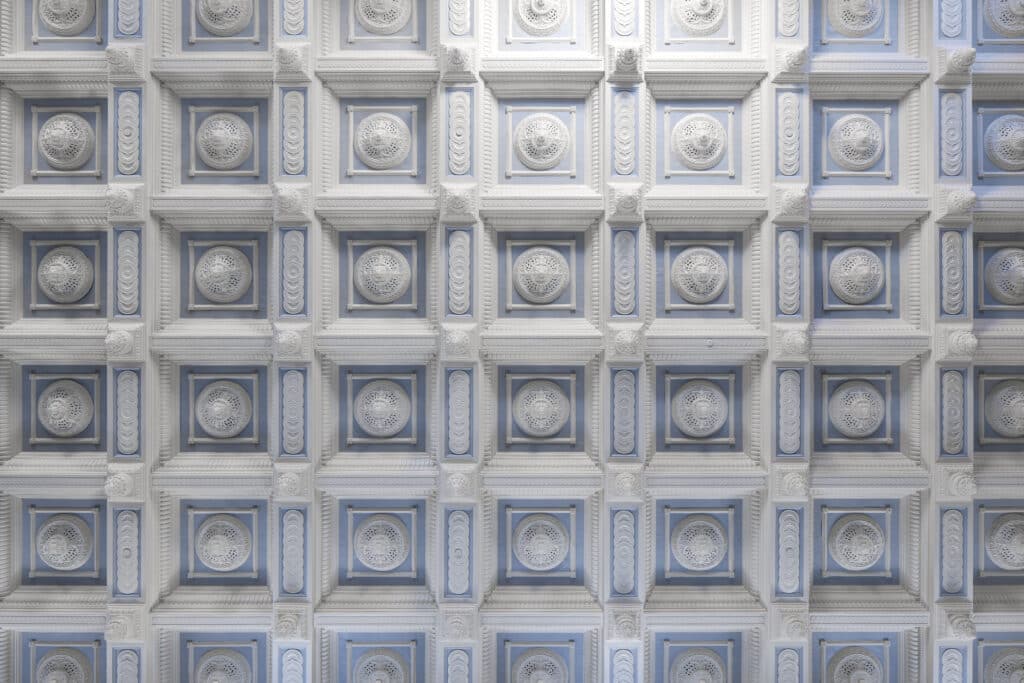
The exterior received meticulous attention — original materials were carefully cleaned and where necessary repaired or replaced. However, the construction of the cathedral posed significant challenges inside and out. Its porous Oamaru stone and brick exterior, rubble core and large interior stone blocks allowed moisture to work its way into the structure. It certainly didn’t help that paint applied to the inside stone surface 35 years ago was trapping moisture within the walls, which showed saturation levels of 99 per cent. The solution was clear: the paint was removed and, within weeks, levels dropped to 65 per cent.
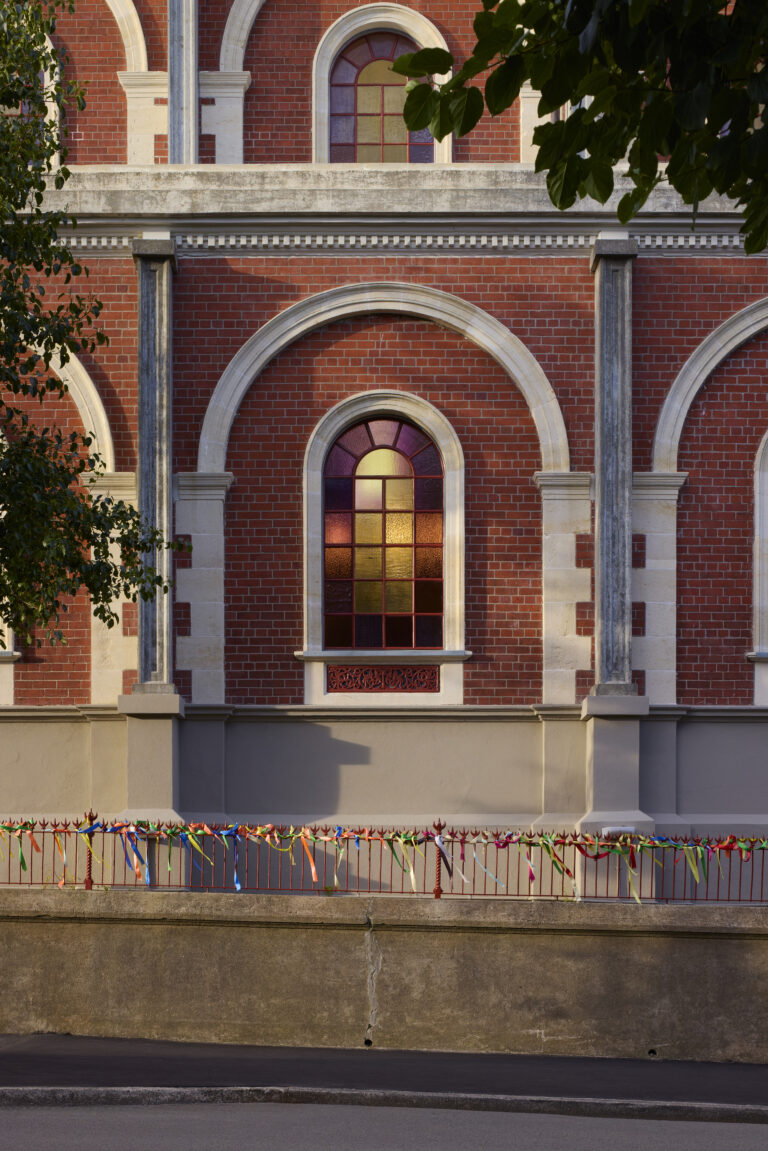
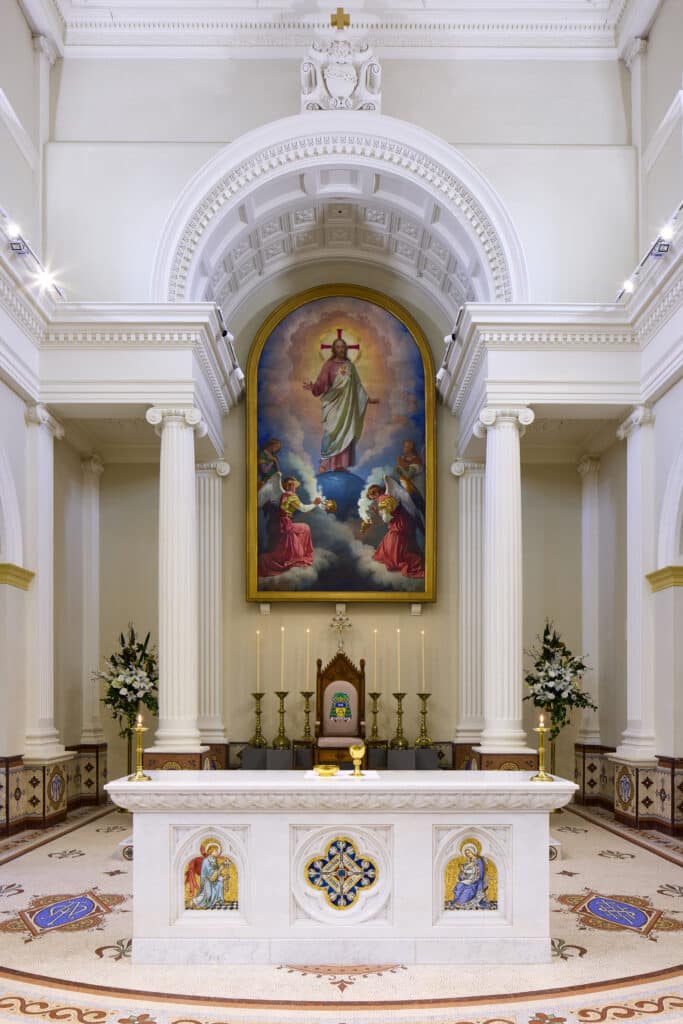
With the Oamaru stone revealed, the focus pivoted to an interior design that complemented the material’s soft hues. Unnecessary decorative elements from previous renovations were removed, returning the ambience of the cathedral to a place of calm and prayer. At the same time, the team also had to provide a fresh, contemporary place for worship.
Plenty of satisfaction came from unearthing and reintroducing heritage elements. For example, the reshaping of the sanctuary with new platforms revealed previously hidden 1920s mosaic tiles.
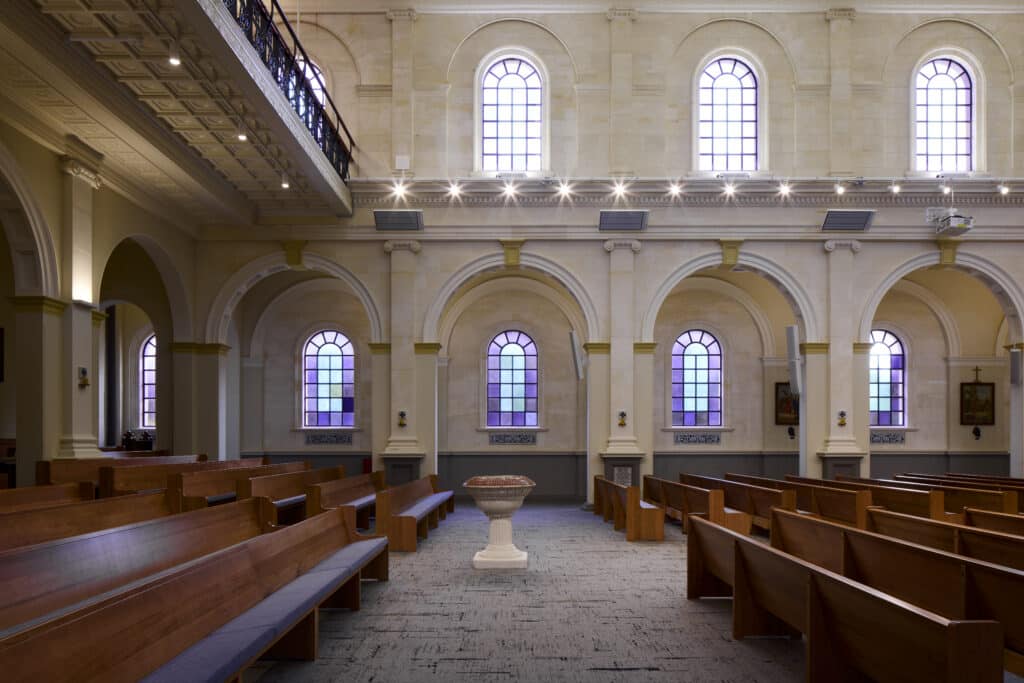
Engineering-wise, a new steel structure concealed in the roof space strengthened the heritage building, while keeping the character features intact. Rods were also inserted in the columns and tension cables installed above the aisles. These safely transfer loads down the building and into the ground.
It’s impossible to put a value on such a special project, however parishioners have expressed their joy at returning to the cathedral, and weekend attendances are up. Before the restoration 300 people attended three masses over a weekend; after the project, that number rose to 550. With new audio-visual and sound systems, the property also draws people to archdiocese events. Although retaining as much of the building’s heritage was paramount in all decisions, this restoration represents much more than architectural conservation. This is a sterling example of how to sensitively blend sustainable, energy-efficient and safety features into a hallowed building, while honouring its history and importance to the community.
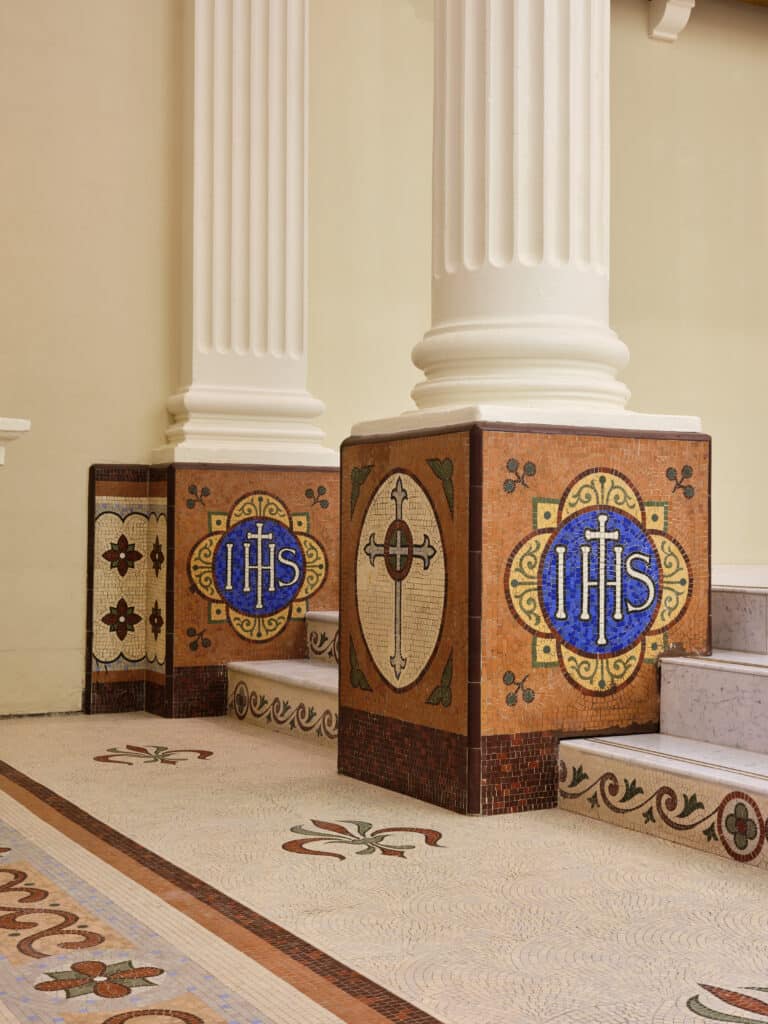
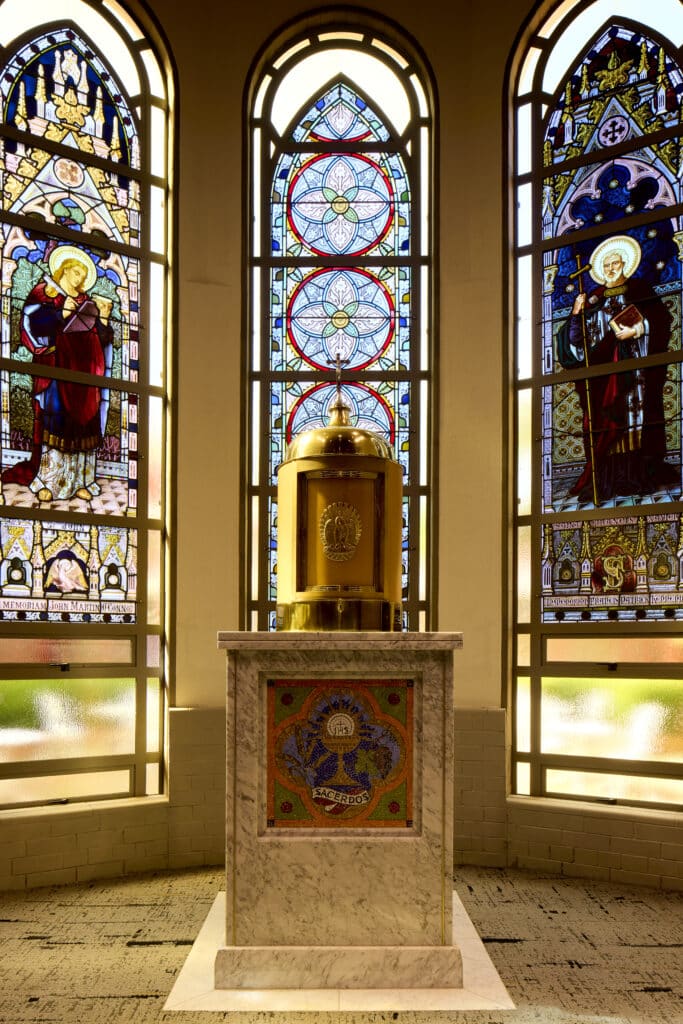
METROPOLITAN CATHEDRAL OF THE SACRED HEART
40 Hill St, Te Whanganui-a-Tara, Wellington
OWNER THE CATHOLIC ARCHBISHOP
OF THE ARCHDIOCESE OF WELLINGTON
CONSTRUCTION LT MCGUINNESS
ARCHITECT TEAM ARCHITECTS WELLINGTON
STRUCTURAL ENGINEER DUNNING THORNTON CONSULTANTS
SERVICE ENGINEER BLACKYARD ENGINEERING (ELECTRICAL)
QUANTITY SURVEYOR MONASTRA QS CONSULTANTS
PROJECT MANAGER TEAM ARCHITECTS WELLINGTON
HERITAGE ARCHITECT PAUL CUMMACK CONSERVATION
FIRE ENGINEER HOLMES FIRE

